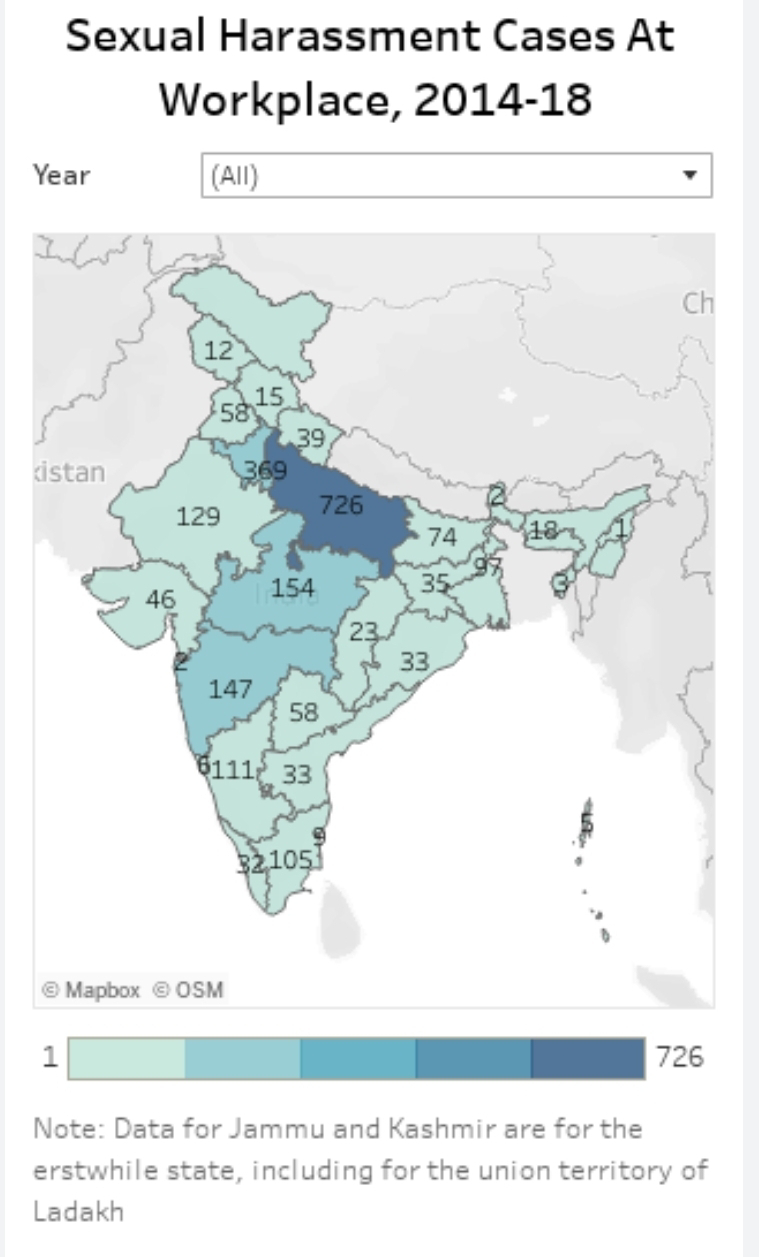Sexual harassment of women
. SEXUAL HARASSMENT
Why in news?
Recently, the Supreme Court took the cognizance of “serious lapses” and “uncertainty” in the implementation of the Protection of Women from Sexual Harassment (PoSH) Act, 2013.
More on the news
• The cognizance came in the backdrop of a newspaper survey revealing only 16 out of 30 national sports federations in the country had constituted Internal Complaints Committees (ICC) mandated under the 2013 Act.
About Sexual harassment at workplace
• Cost of Sexual harassment at workplace
Individuals: Psychological suffering; behavioral change like isolation; Stress-related physical and
mental illness; and Professional losses like foregoing career opportunities.
Employers/Enterprises: Low productivity, Hindered progress and innovation, Poor image of company,
etc.
Society: Women’s undermined access to high-status; Legal and criminal justice expenses; Long term
rehabilitation costs; etc.
• Sexual Harassment of Women at Workplace (Prevention, Prohibition and Redressal) Act or POSH, 2013’was enacted to make workplaces safer for women.
The Act broadened and gave legislative backing to what are known as the Vishaka Guidelines laid down by the Supreme Court in a judgment passed in 1997.
Key Provisions of POSH Act 2013
• Definition of Sexual harassment:
Sexual harassment includes anyone or more of the unwelcome acts (whether directly or by implication) Physical contact or advances; a demand or request for sexual favours; Showing pornography; etc.
• Definition of workplace:
Any place visited by the employee arising out of or during the course of employment, including transportation.
• Aggrieved woman: Covers all women, irrespective of their age or employment status and whether in
organized or unorganized sectors, public or private.
• Grievance redressal mechanism Complaints Committee.
• Internal Complaints Committee (ICC) is mandatory in every private or public organisation that has 10 or more employees. They have powers similar to those of a civil court.
• District Officer to constitute Local Committee to receive complaints from organisations with less than 10 workers or if complaint is against the employer itself.
• Any aggrieved victim or her legal heir may file a complaint for the ICC to take action “within three months from the date of the incident”.
Conciliation : • The ICC may, before inquiry, and at the request of the aggrieved woman, take steps to settle the matter between her and the respondent through conciliation.
Inquiry :
The ICC may either forward the victim’s complaint to the police, or it can start an inquiry that has to be completed within 90 days.
Other provisions Action against the perpetrator
• ICC can recommend to the employer to take action against the perpetrator,
• Appeal against the decision of ICC is available in court within 90 days,
• ICC “may recommend” to the employer that it take action against the false complainant
• Identity of the woman, respondent, witness, any information on the inquiry, recommendation and action taken, should not be made public Challenges in preventing sexual harassment at workplace.
• Dismissive attitude of organisations: Organizations often lack comprehensive and well-communicated
policies and procedures to address sexual harassment.
• Reporting barrier: Potential repercussions such as job loss, social stigma, damage to family reputation,
and so on.
• Challenges of Cross-Cultural and Global Contexts: Cultural norms, language barriers, and variations in legal definitions can complicate prevention efforts.
• Shortcoming in the POSH Act:
1- Gender specific and protects only women.
2-Silent on the incidents of sexual harassment perpetrated by the same sex.
3-Action by the employer is based on the service rules of the company that may vary from company to
Way ahead -
• Zero tolerance policy should be adopted within code of conduct for employees to show companies' firmness against acts of sexual harassment.
• Establish ICC in all the organizations, regardless of size or sector, establish ICCs as mandated by law.
• Effective Grievance Redressalto handle complaints promptly, ensuring fair investigations and appropriate
actions against perpetrators.
• Regular training for all staff and management to enhance understanding of the term sexual harassment.
• Amending the POSH Act, 2013:
1. A gender-neutral law to ensure safety, and justice for all including those of non-normative gender identities.
2. Address the incidents of sexual harassment cases involving same sex.
3. Defined objectively action against the perpetrator.









Comments
Post a Comment